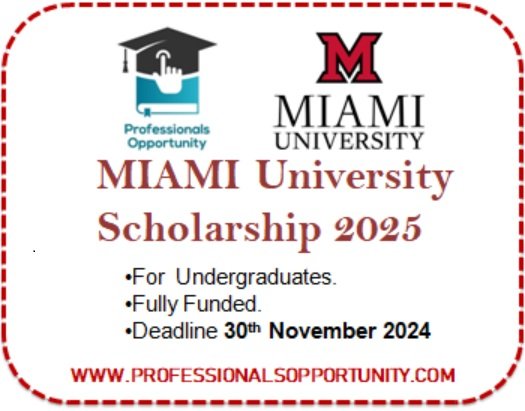
How to contact a university supervisor for PhD research approval ?

Introduction:
Getting approval for your PhD research from a university supervisor is an important step in beginning your doctoral journey. The supervisor you choose will play a significant role in guiding you through the research and writing process over the next few years. Therefore, it is important to thoughtfully select a supervisor whose research interests align with your own and to make a strong first impression when initially contacting them.
In this article, I will share some tips and advice for effectively reaching out to potential supervisors based on my own experience of obtaining PhD approval. While the process may vary slightly between universities, the overall approach outlined here should help provide a helpful framework as you embark on making those important initial supervisor connections.
Research Potential Supervisors:
The first step is to research potential supervisors at the universities you are interested in applying to. Take time to thoroughly examine faculty profiles, publications, current research projects and areas of specialization. Look for supervisors whose work closely relates to the topic you wish to explore. Make a list of 3-5 candidates at each university that seem like strong potential fits.
Some things to look for include:
- Ongoing or recently completed research projects similar to your interests
- Publications within the past few years indicating an active research agenda
- Awards or external grants received demonstrating expertise in the field
- Teaching experience relevant to your proposed area of study
It is also worth considering factors like a supervisor’s availability, reputation, location and past success in helping students complete their PhD on time. Don’t just focus on the most prominent names – sometimes newer or adjunct faculty can offer more one-on-one support. Overall, you want to identify supervisors with capacity and enthusiasm to take on a new student.
Craft a Compelling Research Proposal:
With a list of targeted supervisors, it is time to develop a preliminary research proposal outlining your area of interest and initial questions or hypotheses. A strong proposal is key to impressing potential supervisors and demonstrating your preparedness for doctoral-level work.
The proposal should include:
- A clearly defined research topic or issue within the supervisor’s field of expertise.
- A brief literature review summarizing relevant academic discussions and any gaps in existing research.
- The broad research question or hypothesis you wish to explore.
- A high-level methodology for how you plan to approach the research.
- Potential significance and contribution of findings to the given field of study.
It is fine if this is a draft that can evolve but supervisors will want to see thoughtful consideration of the topic and research design. Have others review your proposal for clarity and focus before contacting supervisors. Tailor elements to each individual based on their published work.
Reach Out Professionally Via Email:
Once your proposal is polished, it is time to reach out via email. Your objective is to introduce yourself, highlight areas of shared interest based on their research, and request a brief initial discussion. Choose a subject line that clearly explains your purpose such as “PhD Research Inquiry Regarding [Topic].”
In the body, include:
- A brief introduction of yourself, your educational background and related experience
- Indicate the PhD programs you are considering at their university
- Identify 1-2 specific projects or publications of theirs that relate to your proposal
- Summarize your proposed research topic and its potential fit within their areas of specialisztion
- Express your enthusiasm to discuss supervising your PhD work, if they have capacity and interest
- Request a 15-20 minute meeting to introduce your proposal and ask questions
- Provide some potential meeting dates/times within the next 1-2 weeks along with your contact details
Express confidence in your qualifications but remain respectful and polite in tone. Proofread carefully for any errors. Following up a week later if no response is fine but avoid multiple follow ups as not to seem overeager or impatient. A response rate of 30% would be typical but persistence can pay off.

Prepare Thoroughly for Initial Meetings:
If you receive interest from a supervisor, promptly schedule an introductory meeting. Use the time leading up to it to further refine your research questions based on their feedback and continue augmenting your literature review. Be ready to discuss in depth:
- Your academic qualifications and relevant experience such as publications, conferences or research assistant roles
- The specific area or issue you wish to investigate and why it is important
- How your interests align philosophically and methodologically with their work
- Any preliminary ideas for methodology, data collection and theoretical frameworks
- Your timeline, desired completion target and plan to manage responsibilities
Anticipate questions about your background, research familiarity, work ethic and critical thinking abilities. Be prepared to demonstrate why you and your project are a strong fit. Practise your responses and bring extra proposal copies. Dress professionally and arrive early with hard copies of your CV and transcripts too.
Follow Up Thoughtfully After Meetings:
Within 1-2 days of your initial discussion, follow up with a thank you email emphasising any positive aspects of your conversation. Restate your enthusiasm for potential supervision and availability should they require any other information from you. This helps leave a strong lasting impression of your organisation, initiative and professionalism.
Allow 1-2 weeks for a decision unless otherwise advised. Should supervisors not feel your research direction is quite right, politely inquire about alternative options within their department or related faculty. Seeing the interaction through shows persistence as well as respect for their time and consideration.
Even if not selected, don’t lose hope – their feedback on your proposal and candidacy may still prove valuable moving forward. Be sure to express thanks for their guidance regardless of the outcome. Building positive relationships early forms the basis for future research collaborations too.
Applying to Multiple Programs for Balance:
Many PhD candidates will apply to research projects with 3-5 potential supervisors across multiple universities simultaneously for the best chance of acceptance. Having alternatives creates leverage in negotiations once an offer comes in. It also hedges you against worst case scenarios where none of your top choices work out.
Of course, ultimately you want to pursue a program aligned most optimally with your passion, supervisor fit and available resources. But an extra application or two doesn’t require much additional effort compared to the reward of options. Be scrupulously professional if speaking to overlapping supervisors at different institutions. Express upfront any other applications you have pending for full transparency.
Consider Pursuing Scholarships and Funding Sources:
Demonstrating access to independent financial support strengthens your candidacy with supervisors. Get an early start researching internal scholarships offered through your program choices and potential external fellowship opportunities. Start soliciting reference letters and draft funding proposals in time for deadlines.
Examples of competitive sources to explore include national research council awards, university-based teaching or research assistantships, donor endowments, faculty-supported awards and philanthropic foundation grants. Have backup options in mind too in case your top choices don’t work out given the selectivity of most funding prospects. Advance planning pays dividends in strengthening your complete package of candidacy materials.
Handle Acceptance and Offers Professionally:
Following acceptance with a supervisor, act quickly to notify all other contacts of your positive decision in a gracious email while thanking them for their time and consideration. Request removal from any other applicant pools as appropriate. A prompt response shows thoughtfulness as well as fairness to other candidates still awaiting decisions themselves.
When signing official offer letters or program acceptance forms, carefully read all terms and conditions, particularly relating to expected start dates, fees and milestones. Request clarification on any unclear aspects before finalising, as circumstances can sometimes change over the course of your degree. Enrol in orientation programs and recommended coursework as instructed by the department.
Make sure to also say thank you – a handwritten card expressing gratitude for the opportunity goes a long way towards cementing your collegial relationship with the supervisor off on the right footing. Keep lines of communication open moving forward to discuss research duties and assistantship responsibilities if applicable before the start of classes. Being a responsible and accountable team player paves the way for future success.
Begin Establishing Effective Communication:
Upon commencing your program, maintaining consistent contact is key to staying on track with both coursework milestones and research progress. Schedule regular bi-weekly or monthly meetings to check-in, discuss readings and exchange feedback on proposal drafts or preliminary results. Use these as opportunities to ask questions about navigating department politics and career options too.
Supervisors receive many requests so be mutually respectful of each others’ time – come prepared with a focused agenda. Also keep in mind they often juggle simultaneous funding timelines and commitments. Be proactive by sending a calendar invite in advance along with a brief summary of items to cover for problem-solving efficiency.
Consider keeping a shared document to track agreed upon deadlines, action items and ongoing to-dos in one place for easy reference. Request constructive criticism as well as praise – use setbacks as chances to sharpen your ideas, not get discouraged. Express appreciation for the invaluable guidance received to reinforce a collegial give-and-take partnership. Treating each other with empathy and understanding sets the foundation for years of fruitful collaboration ahead.
Conclusion:
Contacting and securing approval from a university supervisor is an important first step towards embarking on an exciting PhD journey. With thorough preparation, clear communication and an engaging research proposal that highlights your qualifications and passion for the topic, you increase your chances of impressing the right match.
While it may take multiple rounds of outreach and revisions to land the support of a suitable supervisor, remember that temporary setbacks are natural parts of the process. Maintain a positive attitude and leverage feedback to strengthen your candidacy each time. Be gracious regardless of the outcome of individual applications and keep networking within your targeted departments.
The keys to success are diligent research on potential supervisors, thoughtful customization of your materials to each contact, following up professionally and expressing gratitude for consideration. Treat every interaction as an opportunity to deepen your knowledge and make new academic connections.
With persistence, compelling ideas and respectful relationship-building skills, the right PhD supervisor is within reach. This lays the foundation for years of enriching collaboration developing your research to its fullest potential. I hope you found this overview helpful as you embark on this important step – remember to trust your preparation and let your enthusiasm and qualifications shine through. Wishing you all the best moving forward in this journey of discovery.
FAQs
What is the purpose of contacting potential supervisors?
The purpose of contacting potential supervisors is to introduce yourself and your proposed research topic, determine if they have capacity and interest to supervise a new student, and assess if your research interests align. This allows them to evaluate your fit and candidacy before agreeing to oversee your PhD work.
When is the best time to start contacting supervisors?
It’s recommended to start reaching out to potential supervisors 6-12 months before your intended start date. This gives sufficient time for multiple rounds of discussion as needed before finalising approval. The application process may take several months and supervisors schedule meetings in advance.
How long should the initial research proposal be?
A good target length for an initial research proposal sent with introductory emails is 2-4 pages double spaced. It should define the research problem or question, provide context with a brief literature review, and outline your proposed methodology at a high level. Focus on conveying your ideas clearly and concisely.
What questions should I ask in the initial meeting?
In the first meeting, come prepared with questions about the supervisor’s ongoing and recent projects, resources available, typical timeline for completion, opportunities for conference presentations or publications, availability over the next few years, and their typical supervision style. Learn as much as you can about working with this specific academic.
How long does it take to receive a decision?
Most supervisors will require 1-4 weeks to thoroughly review a proposal and candidate materials before responding. Some may request a follow up meeting for further discussion before deciding. Factors like time of year and other commitments can impact response times so have patience and politely follow up as needed if you haven’t heard back.
What should I do if not selected?
If a supervisor doesn’t feel your research direction is a good fit, politely inquire about alternate research interests within their department or collaborative faculty they think may be a better match. Don’t give up – their feedback can improve your proposal quality. Express thanks for their review and maintain that connection as future opportunities may arise down the road.















2 thoughts on “How to contact a university supervisor for PhD research approval ?”